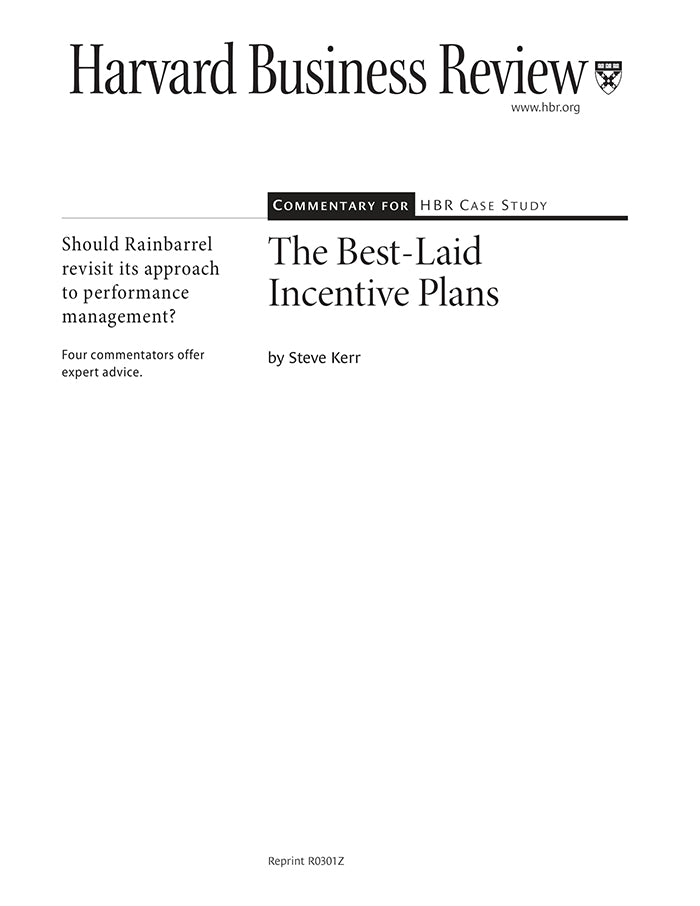Best-Laid Incentive Plans (Commentary for HBR Case Study)
受取状況を読み込めませんでした
For teaching purposes, this is the commentary-only version of the HBR case study. The case-only version is reprint R0301X. The complete case study and commentary is reprint R0301A. Hiram Phillips couldn't have been in better spirits. The CFO and chief administrative officer of Rainbarrel Products, a diversified consumer-durables manufacturer, Phillips felt he'd single-handedly turned the company's performance around. He'd been at Rainbarrel only a year, but the company's numbers had, according to his measures, already improved by leaps and bounds. Now the day had come for Hiram to share the positive results of his new performance management system with his colleagues. The corporate executive council was meeting, and even CEO Keith Randall was applauding the CFO's work. Everything looked positively rosy--until some questionable information began to trickle in from other meeting participants. It came to light, for instance, that R&D had developed a breakthrough product that was not being brought to market as quickly as it should have been--thanks to Hiram's inflexible budgeting process. An employee survey showed that workers were demoralized. And customers were complaining about Rainbarrel's service. The general message? The new performance metrics and incentives had indeed been affecting overall performance--but not for the better. Should Rainbarrel revisit its approach to performance management? In R0301A and R0301Z, commentators Stephen Kaufman, a senior lecturer at Harvard Business School; compensation consultant Steven Gross; retired U.S. Navy vice admiral and management consultant Diego Hernandez; and Barry Leskin, a consultant and former chief learning officer for ChevronTexaco, offer their advice on this fictional case study.
【書誌情報】
ページ数:4ページ
サイズ:A4
商品番号:HBSP-R0301Z
発行日:2003/1/1
登録日:2011/7/29


